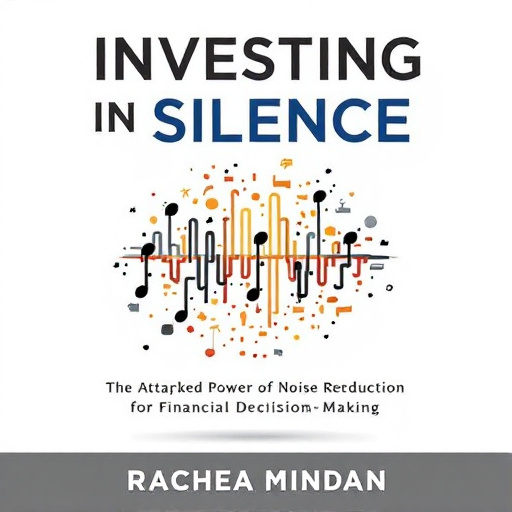Featured Articles
- Investing in Fantasy: How Video Game Economy Trends Are Shaping Real-World Investment Strategies
- Investing in Silence: The Untapped Power of Noise Reduction for Financial Decision-Making
- Investing in the Unusual: How Alternative Assets are Redefining Wealth Building in 2023
- Investing Through the Eyes of AI: How Machine Learning is Shaping Personal Finance Decisions
- Investing with a Conscience: How Ethical Choices are Reshaping Financial Markets in 2023
Investing in Fantasy: How Video Game Economy Trends Are Shaping Real-World Investment Strategies
Investing in Fantasy: How Video Game Economy Trends Are Shaping Real-World Investment Strategies
In an era defined by rapid technological advancement, the economics of video games have grown to rival more traditional financial markets. This article will explore how trends in video game economies, from virtual currencies to in-game asset trading, are influencing real-world investment strategies and reshaping the landscape of investment opportunities.
The Rise of Virtual Economies
Once upon a time, video games were a simple pastime; now, they embody intricate virtual economies that mirror real-world financial systems. According to a report by Newzoo, the global games market is projected to exceed $200 billion by 2023, punctuating the growing significance of virtual economies. These in-game markets operate with their own currencies—like Fortnite’s V-Bucks or World of Warcraft’s gold—that players accumulate through gameplay, essentially becoming forms of digital wealth.
Digital Gold: The Cryptocurrency Connection
Let’s talk about cryptocurrency because, yes, even video games are tying into blockchain technology. A fascinating case is that of Axie Infinity, a game that allows players to earn by breeding and battling creatures called Axies. In 2021, some Axies sold for over $1 million, showcasing the real-world value of in-game assets. Furthermore, the game's economy is bolstered by its native cryptocurrency, AXS, which players can use to make purchases both in and outside the game, creating a genuine cross-over between virtual gaming and real-world financial investment.
Case Study: The Fortnite Phenomenon
Speaking of game economies, let’s take a closer look at Fortnite. The game generates revenue through microtransactions—players purchase V-Bucks to buy skins and emotes. As of 2021, Fortnite had grossed over $9 billion since its launch, underscoring its effectiveness as a revenue-generating machine. Investors keen on consumer behavior are paying attention to this, anticipating long-term trends in digital goods consumption.
Statistical Insights: The Numbers Don’t Lie
Statistics show that millennials and Gen Z are more likely to invest in virtual assets than their older counterparts. A study found that 38% of gamers aged 18-34 have traded virtual goods for real money. This demographic shift signals a profound change in investment strategies, with traditional vehicles like stocks and bonds potentially losing appeal compared to digital assets.
How Gamification is Influencing Investment Platforms
We can also take a moment to appreciate how traditional financial institutions have started acknowledging the gaming culture. Platforms like Robinhood have introduced gamified features to engage younger investors, utilizing incentives that echo the reward systems found in many video games. You could say that investing is becoming more fun, though some critics argue that this downplays the seriousness of financial planning.
The Social Aspect of Investment in Gaming
People enjoy sharing their achievements, whether it's slaying a dragon or doubling their investment in digital assets. The rise of social trading platforms, where users can share tips and strategies just as they would in an MMORPG (Massively Multiplayer Online Role-Playing Game), echoes the collaborative spirit of gaming. For example, eToro and similar platforms allow investors to copy the trades of experienced users, creating a social community around investment—very reminiscent of guilds in gaming.
The Challenges of Merging Virtual Economies with Real-World Investments
But let’s not sugarcoat it; investing in virtual goods is not without its risks. With the rise of fake currencies and scam projects, the challenge for investors is to navigate this treacherous landscape cautiously. Remember the infamous BitConnect Ponzi scheme? It serves as a cautionary reminder that not all that glitters in the digital world is gold. As the Wall Street Journal noted, “The cryptocurrency world is full of ‘get rich quick’ schemes that aggravate the legitimate market.”
Demographic Shift: Investors are Getting Younger
It’s intriguing that the average age of gamers is around 34, with many players seeing engagement through a financial lens. A casual gamer might invest in the skins they've collected in Counter-Strike: Global Offensive—some of which sell for thousands of dollars—viewing them much like collectible cards or rare artifacts. With gaming becoming the third-largest entertainment sector globally, traditional investors are competing to engage with this young, tech-savvy audience.
Using Gaming Analytics for Financial Decisions
Video game analytics are becoming powerful tools for savvy investors. Platforms like GG.co and others provide insights into player trends, allowing businesses and investors to forecast market changes. Understanding player behavior—such as which games are trending and why—can offer profitable investment opportunities.
The Share Market and Gaming Companies
What about stocks in gaming companies? Take Electronic Arts or Activision Blizzard, for example; their stocks have seen significant returns as esports becomes mainstream. The esports market is anticipated to reach over $1.5 billion by 2023, drawing investors who now have their eyes on gaming companies as viable stock options. Esports tournaments regularly attract viewers in the millions, paralleling major sporting events and propelling related stock values upwards.
The Shift in Traditional Investment Strategies
Investors cannot ignore the shift toward digital assets. A report from McKinsey in 2022 highlighted that traditional strategies are being challenged by the introduction of NFTs—unique digital tokens that can represent ownership of in-game items, art, or music. They're not just collectibles; they are reshaping how ownership is defined in the online space. In essence, what we’re seeing could very well be the digitization of property rights.
The Hunger for Digital Diversity
As every gamer knows, variety is the spice of life, and this mantra is taking root in the investment world too. Investors are increasingly viewing diversified portfolios through a lens that includes virtual assets. By adding digital currencies and NFTs to their holdings, they are not just investing in money but also in the culture surrounding gaming—and therein lies a potential goldmine. A recent study revealed that portfolios incorporating cryptocurrency saw an average return of 10% higher than traditional portfolios. Not a bad return for riding the digital wave!
On the Horizon: The Future of Virtual Investment
What does the future hold for this intersection of gaming and investing? As virtual reality (VR) and augmented reality (AR) technologies advance, we may witness the creation of entirely new worlds where virtual economies evolve even further. Imagine investing in a virtual mall, where tenants are real-world brands looking to engage younger consumers. Such metaverse investments would be audacious yet pioneering, cementing the link between digital and tangible currencies.
The Risks of the Digital Frontier
However, the future isn’t all rainbows and unicorns—investor caution is paramount. Market volatility in cryptocurrencies and digital goods remains high, often mimicking the wild ups and downs of a rollercoaster. According to a 2022 analysis by Bloomberg, cryptocurrency prices can fluctuate by up to 25% within a single day, which could lead to catastrophic losses for uninformed investors. A keen understanding of market dynamics is more crucial than ever.
Conclusion: Embracing the New Frontier
In conclusion, the trends shaping video game economies are fundamentally changing how individuals perceive investment opportunities. While there are risks involved, the potential for profit and innovation in digital assets cannot be ignored. As the lines between gaming and finance blur, the savvy investor should take their cues from both worlds—armed with knowledge and a sense of adventure, they might just be able to navigate this exciting digital landscape. The gaming industry may be increasingly more than just entertainment; it could very well be the frontier of financial evolution.




